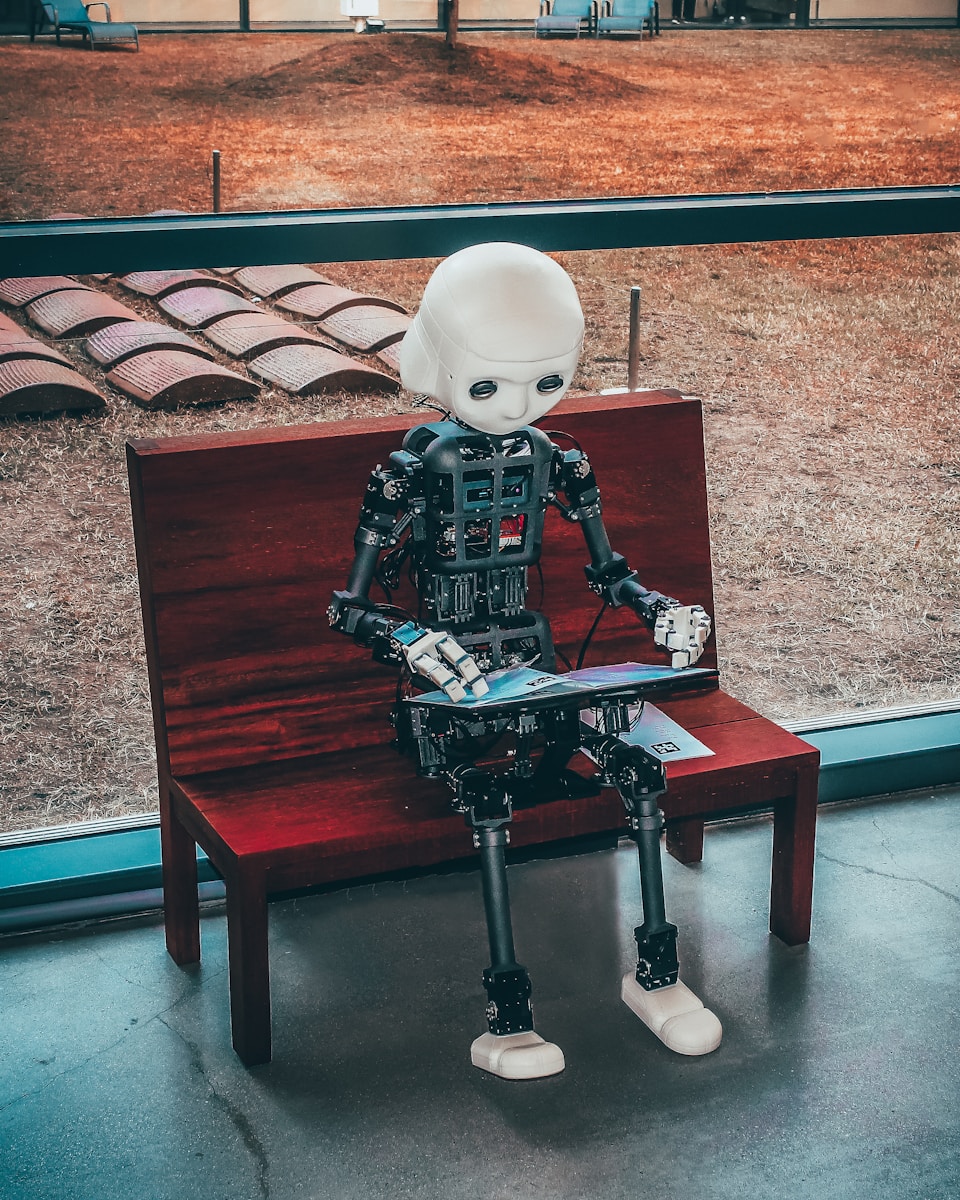AI Digital Revolution Redefining Society
The AI Digital Revolution is no longer a futuristic concept but a present reality that is reshaping Mauritius. From the way we access information to the way businesses operate, artificial intelligence is becoming a core driver of progress. The transformation is visible in education, healthcare, and government services where automation and data-driven decisions are becoming the norm. Citizens are now interacting with digital platforms more than ever, creating a shift in behavior that is altering the social fabric of the nation.
This technological wave is also changing how young people learn and prepare for future careers. Schools are introducing AI-powered tools that help students understand complex concepts in real time. Teachers are supported by intelligent systems that provide feedback on student performance, helping to create a more personalized education experience. Parents too are noticing the difference, as children engage with learning in a more interactive and motivated way.
On a broader scale, AI is improving access to essential services in Mauritius. Government portals are increasingly equipped with chatbots that guide citizens through administrative tasks, reducing waiting times and improving efficiency. This has led to higher public satisfaction and a sense that the country is catching up with global technological standards. The AI Digital Revolution is not just about innovation; it is about creating a society that is more connected and empowered.
AI Digital Revolution and Economic Growth
The rise of the AI Digital Revolution is fueling economic growth by boosting productivity across multiple sectors. Small and medium-sized enterprises are adopting AI-driven analytics to understand market trends, predict customer preferences, and streamline operations. This is resulting in better decision-making and higher competitiveness for local businesses. Startups are also finding opportunities to build AI-based solutions tailored to the Mauritian market, attracting investors who are eager to fund innovation.
Financial institutions are leveraging artificial intelligence to improve risk assessment and fraud detection. This not only enhances security but also builds trust among customers who feel safer conducting transactions online. The banking sector is rolling out AI chatbots for customer service, enabling faster responses and reducing operational costs. This digital shift is also helping unbanked populations gain access to financial services, contributing to greater financial inclusion.
Tourism, one of the pillars of the Mauritian economy, is benefiting from AI tools that personalize travel recommendations for visitors. Hotels and resorts are using smart algorithms to optimize bookings and manage resources efficiently. Travelers are experiencing smoother services from the moment they book a flight to the time they check into their hotel. The AI Digital Revolution is helping Mauritius remain a competitive destination in a global market that is constantly evolving.
AI Digital Revolution Transforming Healthcare
Healthcare in Mauritius is witnessing a major transformation thanks to the AI Digital Revolution. Hospitals are adopting AI-assisted diagnostics that help doctors detect diseases earlier and with greater accuracy. Machine learning algorithms are being used to analyze patient data and recommend treatment plans that are more effective and less invasive. This leads to improved patient outcomes and a higher quality of care overall.
Telemedicine is another area where AI is making a significant impact. Remote consultations powered by intelligent systems are allowing patients in rural areas to connect with specialists without traveling long distances. This is particularly crucial for those with chronic illnesses who need regular follow-ups. The ability to receive expert advice from the comfort of home is improving both patient satisfaction and health outcomes.
AI is also helping public health authorities predict disease outbreaks by analyzing large datasets. Early detection allows for rapid response and targeted interventions that prevent epidemics from spreading. This level of preparedness is crucial in a world where global health threats are becoming more frequent. The AI Digital Revolution is not just about innovation in healthcare, but about saving lives and building a more resilient public health system.
AI Digital Revolution in Education
The AI Digital Revolution is opening new doors for education in Mauritius, making learning more accessible and engaging. Classrooms are becoming smart spaces where students interact with adaptive learning systems that tailor lessons to their individual pace. These tools help identify areas where students struggle and provide instant feedback, enabling teachers to focus on personalized guidance rather than repetitive tasks.
Online learning platforms powered by AI are giving students access to a wealth of knowledge beyond the traditional curriculum. Learners can explore global courses, practice skills in virtual labs, and receive recommendations for improvement. This democratization of education is reducing inequality and giving children in rural areas the same opportunities as those in urban centers.
AI-driven language translation is also helping break barriers in Mauritius’ multilingual society. Students can access study material in the language they are most comfortable with, making learning more inclusive. This supports the government’s vision of a knowledge-based economy where every citizen is empowered with the skills needed to thrive in a digital future.
AI Digital Revolution and Workplaces
The impact of the AI Digital Revolution is being felt strongly in workplaces across Mauritius. Employers are automating repetitive processes, freeing employees to focus on creative and strategic tasks. This shift is increasing job satisfaction while boosting productivity. Workers are being trained to work alongside intelligent systems, learning how to interpret data and make faster decisions.
Remote work has become more efficient thanks to AI-powered collaboration tools that facilitate virtual meetings, track project progress, and even summarize discussions. These innovations have made hybrid work models sustainable, allowing businesses to tap into talent from anywhere on the island. The result is a more flexible and resilient labor market.
While some fear that AI may lead to job losses, the reality is that new roles are being created in AI development, data analysis, and digital infrastructure management. Government and private institutions are investing in upskilling programs to ensure that workers remain relevant in this evolving landscape. The AI Digital Revolution is therefore not replacing human potential but enhancing it.
AI Digital Revolution and Social Media
Social media platforms in Mauritius are also undergoing a transformation thanks to the AI Digital Revolution. Algorithms are becoming more sophisticated at curating content, showing users posts that align with their interests and habits. This has increased engagement but also sparked discussions about the balance between personalization and information diversity.
Brands are leveraging AI to analyze audience behavior and create more targeted marketing campaigns. Small businesses, in particular, are benefiting from these tools as they can reach customers with greater precision and lower advertising costs. This levels the playing field and allows entrepreneurs to compete with larger corporations.
However, the rise of AI also brings challenges such as the spread of misinformation. Social media companies are deploying AI-powered fact-checking systems to identify false news and protect users from harmful content. The AI Digital Revolution is therefore shaping not just how people connect online, but also how information integrity is maintained in the digital age.
AI Digital Revolution in Governance
The AI Digital Revolution is enhancing governance in Mauritius by bringing greater transparency and efficiency. Government agencies are using data analytics to monitor public service delivery and respond to citizen concerns faster. Predictive models help allocate resources where they are most needed, improving disaster management, urban planning, and public safety initiatives.
Open data platforms powered by AI are allowing citizens to track government projects in real time, increasing trust between the state and its people. These platforms also give researchers and journalists the tools they need to hold institutions accountable. The digital transformation is therefore not just a technological shift but a democratic one.
International organizations are recognizing Mauritius as a regional example of how small nations can leverage AI for good governance. Reports highlight the country’s progress in building smart infrastructure and digital literacy among its population. The AI Digital Revolution is making Mauritius a model for others in the region to follow.
AI Digital Revolution and Environment
AI is playing a crucial role in protecting Mauritius’ delicate ecosystem. Smart sensors and satellite data are being used to monitor coastal erosion, track illegal fishing, and predict weather patterns with greater accuracy. This allows authorities to act quickly to prevent damage to marine life and safeguard the island’s natural beauty.
Waste management systems are being upgraded with AI-powered sorting machines that improve recycling rates and reduce pollution. Renewable energy projects are also benefiting from machine learning algorithms that optimize energy production and consumption. These innovations are helping Mauritius transition toward a more sustainable future.
The AI Digital Revolution is proving that technology and environmental stewardship can go hand in hand. By integrating smart solutions into conservation efforts, Mauritius is setting a powerful example for island nations worldwide.
AI Digital Revolution and Future Challenges
Despite the many benefits, the AI Digital Revolution also presents challenges that Mauritius must address. Ethical concerns about data privacy, algorithmic bias, and the potential misuse of AI technologies are growing. Policymakers are working to create regulatory frameworks that protect citizens while encouraging innovation.
Cybersecurity is another area requiring urgent attention. As more services go online, the risk of cyberattacks increases. Investments in digital security infrastructure and public awareness campaigns are crucial to maintaining trust in digital systems. Collaboration with international partners is helping Mauritius stay ahead of emerging threats.
Finally, there is a need to ensure that no citizen is left behind. Bridging the digital divide by providing affordable internet access and digital literacy programs will be key to maximizing the benefits of AI for all segments of society. The AI Digital Revolution will succeed only if it remains inclusive and equitable.
Conclusion
The AI Digital Revolution is more than a technological upgrade; it is a societal transformation. Mauritius is embracing this change and positioning itself as a hub for innovation in the Indian Ocean region. By investing in education, infrastructure, and regulation, the country is paving the way for a future where technology serves the public good. The journey is ongoing, but the progress so far is a testament to the resilience and adaptability of the Mauritian people.
For a deeper dive into global AI trends, you can read this insightful article from World Economic Forum.
To explore more local stories on how society is changing, visit our Social Trends Mauritius section.




